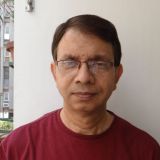
Why AAP opted to scale up its movement across the country?
Mr. Yogendra Yadav admits that the AAP has gambled by choosing to contest across the country rather than confine itself to its stronghold regions of Delhi and Haryana: “In Delhi, we had a political breakthrough and made a moral impact. There were two choices before us. Either consolidate ourselves in Delhi and expand at the most to a few metros and therefore have good returns. Or scale up our fight in view of the unprecedented response the AAP has been getting from around the country.”
“I’m sure we have opted for the right course because we are in this for the long-run; our objective is to create a long-term alternative. Upscaling so rapidly is difficult but by not expanding, we ran the risk of allowing our support to evaporate. My own view is that the only way to create a national political alternative is through these rapid and crazy moves of upscaling. The text-book understanding of politics is that you do small steps. But this has never happened in history. Launching a party is like rocket launching. Either you defy gravity or you collapse, there is no third way. This was the only realistic path available. We will see after the election how far we have succeeded.”
Mr. Yadav’s prognosis for his party is that it is a serious contender for winning in Delhi, Haryana, Punjab and Chandigarh and in some urban pockets of Uttar Pradesh, Maharashtra and Karnataka. A second tier consists of regions where the AAP could get a 5 to 10 per cent vote share, making the party “politically viable straightaway.” Mr. Yadav believes that the AAP’s presence in these regions “will change the nature of political competition.” Then there is a third tier, where the AAP, Mr. Yadav says, will “register only a symbolic presence.” But even a symbolic presence is important “because in the long run it gives you a national character. He gives the example of Punjab and Gujarat where the communists and the Gandhians respectively had a tiny presence but nonetheless acted as a strong moral force: “The moral pressure brings attention to critical issues.”
Mr. Yadav says he takes a long-term view of politics: “The idea is to create a force of virtue that will change the character of public life; that will shape the national agenda.” According to him, “The real test of a political force is how much do you shape the agenda, how much do you change the rules of the game, how many idealistic youth do you draw to the party.”
What if the AAP was crushed by a gigantic Modi wave? Mr. Yadav is clear that that will only strengthen the party’s will to fight Mr. Modi. “It does not matter how many seats the AAP wins. Even with no seat, we will stand up on the street and fight Modi. The Congress and Rahul Gandhi will not have that courage. At that point we will need a strong moral force to take on Modi and that will be the AAP. For me that is my politics.”
Pravin sinhaji should have his own political party and seek support instead of extending his most valuable suport.
Mar 28
All this could have been done simultaneously to give good governance in Delhi. On Fri, Mar 21, 2014 at 7:39 PM, Sunil Dutt Agrawal < support@localcirclesmail.com> wrote: >
Mar 27
I agree, we must highlight issues that touch the middle classes & the poor, and handsome dividends will result.
Mar 22
@Mahendraji, as you know that BJP wants to win the election at any cost, so they have given up there top most agenda of hindutva and temple. Neither they talk about it, they are so desperate that they are taking all congress and SP MPs, corrupt people, making aliance with LJP etc, and not to say Yedurrapa and Bokharia are also part of this big corrupt team, I mean all the corrupt groups. But so if we can stick to Corruption, and inclusive growth, women safety and controlling inflation, AAP will get much more vote. The politics on the basis of religion and caste are old ones, which people will not relate too. So we should only focus on these issues.
Mar 22
This is for Carl, and for others too. I believe that AAP is in for a long haul, to fight corruption, and to achieve which govt formation may be a means but not an end. The present alarming situation, created by crony capitalism & deeply entrenched political & bureaucratic corruption calls for a movement like AAP, which is primarily a pressure group, to register a pan India presence, and do so fast. Being just Delhi centric, would not help. The credible threat should be of a third alternative at the Center. Till 20.03.14 the list of candidates, released by BJP, Congress & AAP, respectively, were 365, 364 & 287. May be some more candidates could be put up by AAP, other parties would certainly add to their list, but even with 287 fresh, noncontroversial & baggage free candidates, an all India presence has been established. Is this strategy a mistake ? Well, may be. Let us wait & watch for 16th May.
Mar 22






